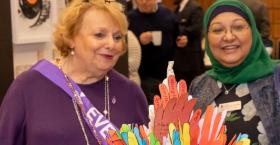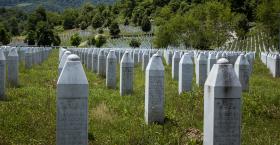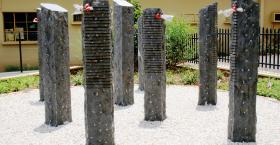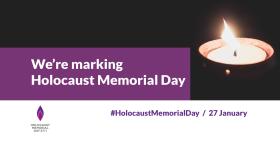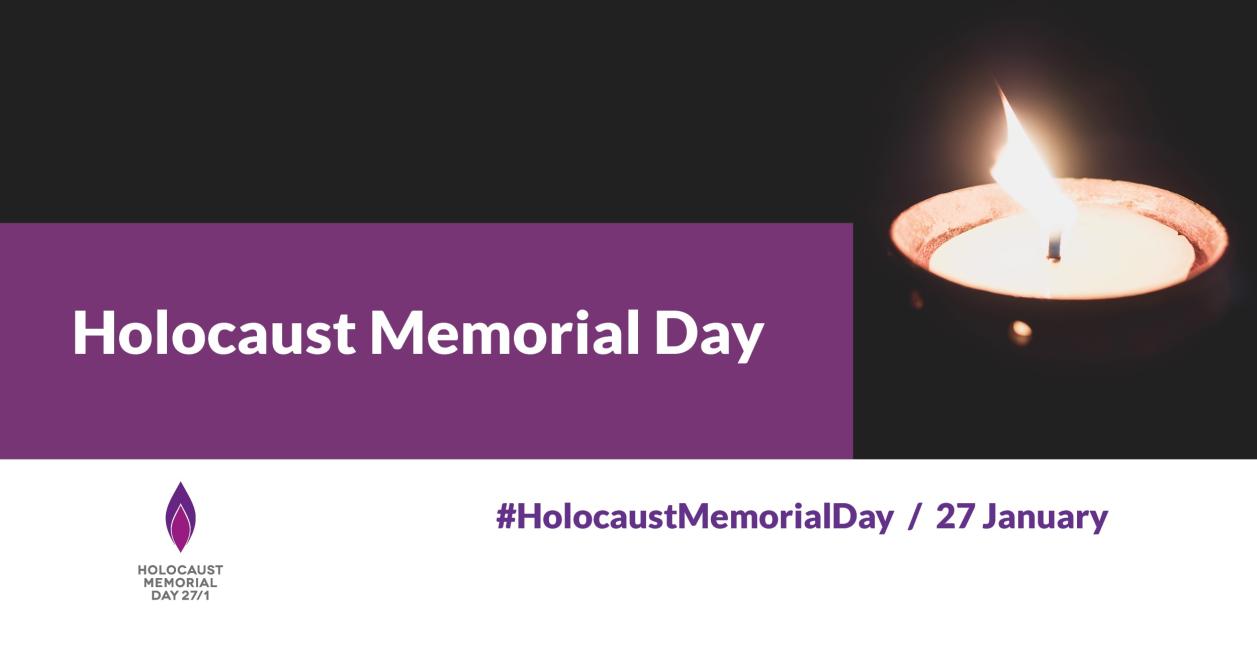
Holocaust Memorial Day
Holocaust Memorial Day takes place every year on 27 January, the anniversary of the liberation of the Auschwitz concentration camp during the second world war.
It is a day to remember the millions of people murdered in the Holocaust and the genocides that followed in Cambodia, Rwanda, Bosnia and Darfur.
In the UK we are fortunate not to be at immediate risk of genocide but hatred and discrimination still exist. Antisemitism has increased significantly following the 7 October attacks in Israel and the subsequent war in Gaza. Extremists are exploiting the situation to stir up anti-Muslim hatred. Many people in the UK feel vulnerable. Hostility is rising and people are becoming more suspicious of others.
Stages of Genocide
While prejudice, discrimination and racism don't always lead to genocide we must learn from the lessons of the past. We must recognise that genocide doesn't just happen - it is a process that begins when racism and hatred are not checked and prevented.
Professor Gregory H Stanton has identified 10 stages of genocide. These show that genocide is a process that develops in stages that are predictable but not inevitable.
- Classification - Difference is not respected creating a division of 'them' and 'us'.
- Symbolisation - Identifying people as different. The Nazis forced Jews to wear yellow stars
- Discrimination - Certain groups are denied their civil rights. The Nuremburg Laws stripped Jews of their German citizenship.
- Dehumanisation - Treating people as a different form with no human rights or personal dignity. Tutsi in Rwanda were referred to as cockroaches.
- Organisation - Genocide doesn't just happen. It is planned and regimes train people to destroy others.
- Polarisation - Propaganda is used to spread hate about the targeted groups creating fear and distrust.
- Preparation - Perpetrators plan for the genocide using phrases such as 'The Final Solution' to hide their true intentions while building armies and weapons to destroy their target groups.
- Persecution - Victims are identified, death lists created, people segregated, deported and starved. Genocidal massacre begins.
- Extermination - A deliberate and systematic campaign of violence and murder. Millions lose their lives and others are changed beyond recognition.
- Denial - The perpetrators, and sometimes later generations, deny the existence of any crime.
During the earlier stages there is a chance to stop the genocide before it happens but the world often fails to notice what is happening until it is too late. Learning about the Holocaust and genocide can help us identify the warning signs before it is too late so we can take action For a Better Future.
You can find out more about the 10 stages of genocide at https://www.hmd.org.uk/learn-about-the-holocaust-and-genocides/what-is-genocide/the-ten-stages-of-genocide/
Holocaust Memorial Day 2025 - For a Better Future
Holocaust Memorial Day 2025 is the eightieth anniversary of the liberation of Auschwitz-Birkenau and the thirtieth anniversary of the genocide in Bosnia. After every genocide we say 'this an never happen again yet wars continue across the globe, including in Europe and the middle east.
the Holocaust Memorial Day Trust have announced that the theme for Holocaust Memorial Day 2025 is 'For a Better Future'. This is an opportunity for people to come together, to learn both from and about the past and to take action to create a better future for us all.
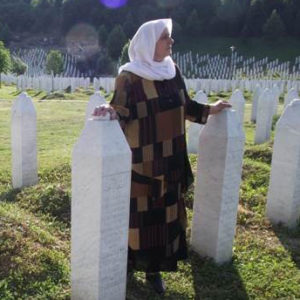
""I am a woman who lives in Srebrenica alone. I am a woman that once had a husband. I am a mother that gave birth to two sons. But I have no one anymore. I go to bed alone and I wake up alone. I gave birth two children who played, went to school, who laughed, yet all I had to bury were just two bones." - Hatidža Mehmedović, a wife and mother whose husband and sons were murdered in the Srebrenica massacre.
Holocaust Memorial Day 2024 - Fragility of Freedom
The Holocaust Memorial Memorial Day Trust have announced 'Fragility of Freedom' as the theme for Holocaust Memorial Day 2024.
"That is when the trouble started for the Jews. Our freedom was severely restricted by a series of anti-Jewish decrees." - Anne Frank, Diary entry, Saturday 20 June 1942, reflecting on the Germans arriving in the Netherlands in May 1940.
Freedom means different things to different people. What is clear is that in every genocide the freedom of those persecuted is restricted and remove before many of them are murdered. It is often a subtle, slow process that goes unnoticed.
The perpetrators don't just erode the freedom of the people they target. They demonstrate the 'Fragility of Freedom' to prevent others from challenging their regime.
Despite this, in every genocide, there are people who risk their own freedom to help others. They stand up to the persecutors to preserve the freedom of others.
Genocide in Rwanda
Holocaust Memorial Day 2024 marks 30 years since the genocide against the Tutsi in Rwanda
49 years after the end of the Holocaust and 19 years after the genocide in Cambodia the world stood by as Hutu extremists shattered the fragile freedom in Rwanda. Decades of tension and violence culminated in the murder of over one million Tutsis in just one hundred days.
Fragility of Freedom
Today many of us take freedom for granted. We believe the Holocaust, genocide, will never happen again. But if we don't recognise the 'Fragility of Freedom' then how can we learn from the mistakes of the past.
Holocaust Memorial Day Commemorations
If you would like to give us feedback on our website, please complete this short online form.
